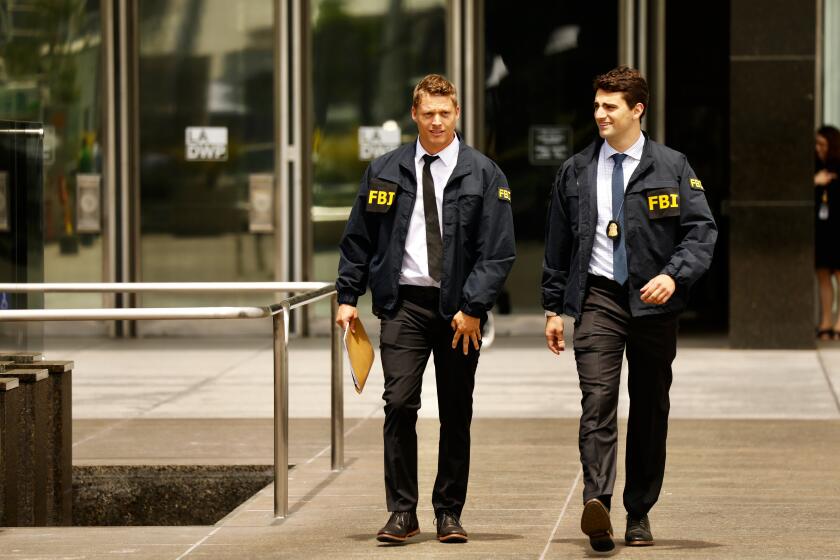DWP board wants to know how much the agency has spent on legal fees amid scandal

- Share via
The Department of Water and Power’s Board of Commissioners on Tuesday ordered an accounting of how much DWP money has been spent on legal representation and related expenses stemming from the 2013 billing debacle.
The action follows a string of plea-deal announcements involving former employees of the DWP and city attorney’s office. Prosecutors say attorneys working for the city admit they took part in a collusive plan to file and then settle a high-profile class-action lawsuit brought by DWP customers against the city over inflated DWP bills.
The motion passed Tuesday instructs staff to present a report on “all ratepayer funds spent between September 1, 2013, to present date for legal services in connection with any matter” related to the billing litigation, including an accounting of expenditures on outside counsel.
The motion also bans the DWP from “simultaneously” contracting with any attorney, law firm or special counsel providing legal services to utility.
Prosecutors last month announced that former DWP general manager David H. Wright agreed to plead guilty to bribery, admitting that he pushed the DWP board in 2017 to award a $30-million no-bid contract to an attorney hired by the office of City Atty. Mike Feuer.
Thomas Peters, a former official in the Los Angeles city attorney’s office, has agreed to plead guilty to one count of aiding and abetting extortion.
The board’s vote comes one day after prosecutors announced that a former top attorney in Feuer’s office, Thomas Peters, agreed to plead guilty to one count of aiding and abetting extortion.
Peters, who worked as chief of the civil litigation branch, helped oversee the city’s lawsuit against PricewaterhouseCoopers, the consulting firm that the city blamed for the 2013 billing problems.
Feuer’s office had aggressively pursued the PricewaterhouseCoopers case in an effort to recoup potentially hundreds of millions of dollars resulting from the 2013 overbilling fiasco but later abandoned the lawsuit. Before dropping its lawsuit, the city’s lawyers fought demands from PricewaterhouseCoopers to produce documents that would have damaged the city’s case, prosecutors said.
The DWP board also moved last month to retain its own independent attorneys, rather than rely on advice from the city attorney’s office on issues surrounding the billing litigation.
“There could be advice that we received that could be motivated by an interest in deflecting, diminishing or covering up previous bad acts,” DWP board President Cynthia McClain-Hill told The Times in an interview last month. “We need to know that our advice is not influenced by any of those motivations. It’s not to say that they have been or that they are, but they could be.”
The board also last month asked that three city attorneys accused of various ethical breaches in a court-ordered investigation no longer work on DWP-related matters. The attorneys have denied wrongdoing.
Feuer, in a Dec. 15 letter to the DWP board, agreed to McClain-Hill’s request for independent counsel and said the three attorneys would work on different matters.
More to Read
Sign up for Essential California
The most important California stories and recommendations in your inbox every morning.
You may occasionally receive promotional content from the Los Angeles Times.















